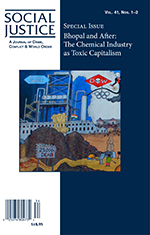Description
Unfinished Exorcism: The Legacy of Apartheid in Democratic Southern Africa
In this first-person account of Namibia’s transition from terror-based structures to more liberal-democratic one, Ben Carton notes that as Soviet influence was receding in Africa in 1989, Namibia, a country occupied by South Africa as a buffer against Marxist Angola, gained independence after the first all-race elections supervised by the United Nations. The transformation in Namibia foreshadowed the end of apartheid and Pretoria’s crusade to silence internal enemies. By 1994, multiparty negotiations in South Africa culminated in a democratically elected government led by Nelson Mandela and the African National Congress. Peaceful “liberation elections” appeared to signal a new era of reconciliation. Today, however, the people of Namibia and South Africa are stricken by fears of crime and AIDS. There is a popular outcry to reintroduce draconian measures, including bringing back the death penalty and placing HIV-positive people in quarantine. This article revisits the period immediately before Namibia’s historic vote to explore the font of today’s intolerance. In the spring of 1989, the author went to Southern Africa to observe the U.N. voter registration drive in Namibia for the Council of Churches. There, he took photographs, recorded incidents of civil violence, and kept a journal that shows that the specter of retribution from the old order offered scant opportunity for the masses to jettison one legacy of the repressive past: a deep anxiety that the “enemy” most to be feared lurks “within” and must he banished.
South Africa; democratic transition — Southern Africa; Namibia — politics and government; South Africa — apartheid; Southwest African People’s Organization [SWAPO]
Citation: Social Justice Vol. 27, No. 1 (2000): 116-127



